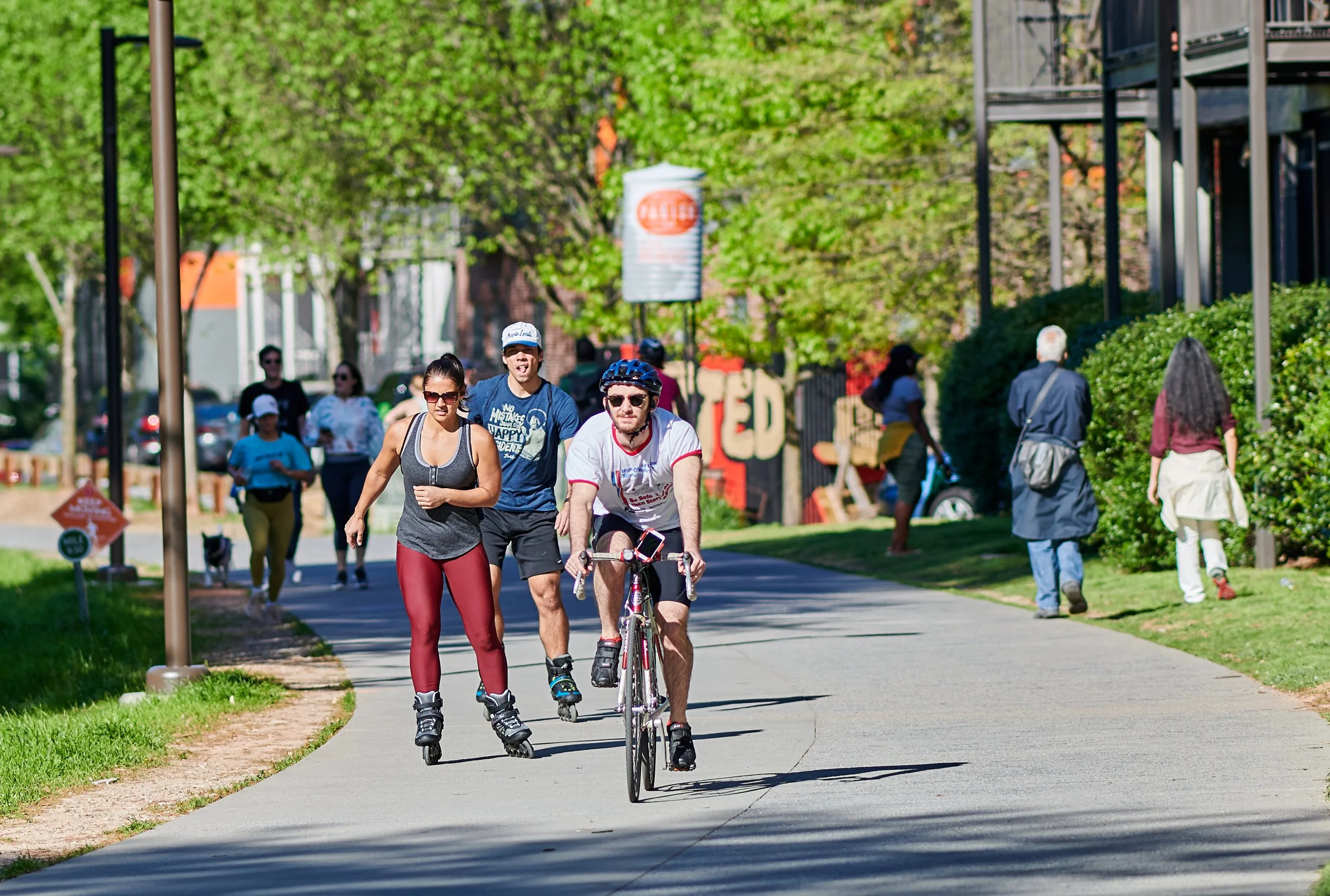
How can an old railway give new life to a city?
Atlanta BeltLine
Atlanta BeltLine, Inc. & Atlanta BeltLine Partnership
Originally Conceived by Ryan Gravel
Atlanta, GA
2005 - Present
The decline of the rail industry in the United States left cities and rural areas with long stretches of abandoned or unused rail tracks. Through the rails-to-trails movement, these are being converted into recreational trails for non-motorized activities such as walking, running, and cycling.
Atlanta—founded in 1837 as the end of the Western & Atlanta Railroad line—is converting a 22-mile loop of historic railroad corridors encircling the city's core into the Atlanta BeltLine.
This comprehensive network of parks and multi-use trails is connecting and revitalizing neighborhoods. It promotes sustainable mobility, fosters community engagement, and creates economic growth.
The long-term vision for the project is to implement a streetcar or light rail system along the loop to enhance connectivity and mobility further.
-
WEBSITES
Atlanta BeltLine: https://beltline.org/
VIDEOS
Ryan Gravel, “Building the City We Want to Live In,” TedXAtlanta, 2010.
Ryan Gravel — who conceived the idea of the Atlanta BeltLine — explains how the solutions that are bringing the BeltLine into reality have their foundation in the neighborhood support the idea first garnered.
Bloomberg CityLab, “The Simple Ambition of Atlanta’s BeltLine Project,” 2017.
An inside look at the construction of Atlanta's BeltLine, a 22-mile pedestrian-friendly corridor circling downtown and eventually connecting 45 neighborhoods with each other.
BOOKS
Ryan Gravel, Where We Want to Live: Reclaiming Infrastructure for a New Generation of Cities, St. Martin’s Press, 2016.
Cities have the capacity to create a healthier, more satisfying way of life by remodeling and augmenting their infrastructure in ways that connect neighborhoods and communities. Gravel came up with a way to do just that in his hometown with the Atlanta Beltline project.
Mark Pendergrast, Cities on the Verge: Atlanta and the Fight for America’s Urban Future. Basic Books, 2017.
An inspiring narrative of ordinary Americans taking charge of their local communities, City of the Verge provides a model for how cities across the country can reinvent themselves.
Images courtesy of Atlanta BeltLine



